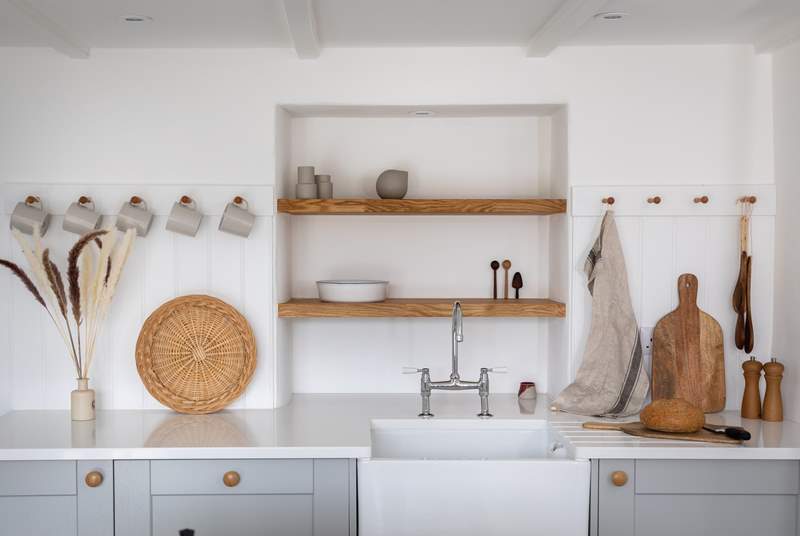Things you need to know about holiday letting
Letting with classicIt is one thing finding the perfect home to holiday let, but it is quite another to know how to run it as a business. That’s where our handy guide comes in. Here is a quick overview on the finer details, from tax and insurance through to maintenance.
1. Tax
2. Property Management
2. Insurance
1. Tax planning to make the most of your holiday home
What do you need to know?
Furnished Holiday Lettings occupy a special niche in the tax world, conferring certain benefits and allowances that are normally only available to trading businesses. In order to benefit from these, your property will need to:
Be let on a commercial basis with a view to making a profit; a business plan encompassing profit and loss or cash-flow projections, will help to satisfy this requirement
Be furnished appropriate to its size
Be available to be booked for at least 210 days a year (30 weeks)
Be let commercially to the public for at least 105 days (15 weeks)
Not be occupied by the same person for more than 31 days and have no more than 155 days of such ‘longer term’ occupation
Once a property acquires FHL status it will retain this even if it fails to meet the occupation conditions for two consecutive tax years. To continue to be eligible the property will need to meet the occupation conditions once every three years at a minimum.
Tax breaks*
With these conditions fulfilled you will be able to benefit from:
Capital allowances on fixtures, furniture, fittings and equipment will qualify for Annual Investment Allowance
Capital Gains Tax relief if you sell your property, including Entrepreneurs’ Relief, allowing the taxable gain to be charged at the reduced rate of 10%
Roll-over relief – where specific chargeable gains can be deferred if new trading assets are acquired
Hold-over relief – if the property is gifted, the capital gain can be frozen until the recipient sells
Proportion of profits – if operated by a husband and wife partnership, the profit can be allocated in any proportion, irrespective of actual shares
Pensions savings – profits from running an FHL business are classified as ‘relevant earnings’ allowing owners to make a bigger contribution to their pension
Mortgage interest tax relief - you do not need to pay tax on mortgage payments for holiday lets – holiday home owners pay less tax on their income than residential landlords
What expenses can I claim?
To be considered as a deductible, an expense must be incurred ‘wholly and exclusively’ for the purposes of the FHL business. It must also not be ‘capital’ in nature. Capital expenses are usually one-off incurred in the original purchase, construction, or improvement of a property. Some expenditure on plant and other equipment may qualify for ‘Capital Allowances’
As an owner of a FHL, you will need to complete a tax return. Given that tax laws do change from time to time, we would always advise that holiday home owners seek the advice of a qualified, professional accountant to ensure tax efficiency.
* Fuller details on tax can be found on the Classic Cottages website. Tax information accurate as of August 2021.
See our '2022 guide to VAT for Furnished Holiday Lets' for further details.
2. Property management

Holiday homes are dear to us all, and whether you’ve inherited a second home, bought your dream cottage, or you’re looking to buy a property as an investment with perks, one thing that you’ll need to consider is how to manage your property.
Even if you live locally, being bound by the cleans and changeovers could become an unwelcome burden. You may have someone in mind - a trusted friend or a local cleaning service that you’ve heard of or used before. Alternatively, you may be relieved to hear that Classic Cottages can take all the stress away with our Managed Services offering.
Regardless of which path you choose you’ll need to organise the following:
1. Find a housekeeper/gardener/window cleaner
2. Organise weekly waste collection
3. Organise linen cleaning and collection
4. Arrange Compliance Certification
5. Have a plan for resolving issues during a booking
6. Have contractors ready to handle issues when guests are in situ on your behalf
7. Have a second emergency key safe in place for use by contractors
Not got time to manage your holiday home? We can help...
For many time-poor owners, holiday homes are for enjoyment. That’s why we provide a Managed Service, all to make your life easy. That includes a 24/7 emergency line, so you don’t have to worry every time an issue arises. We’ll just fix the problem and let you know once it’s been sorted, which is good news for your guests, and for you.
You’ll be kept in the loop on the owner portal all the way, and any invoices for works undertaken by contractors will be charged at cost. That’s holiday home ownership as it should be - without the hassle.
The choice of how you manage your holiday home is completely down to you of course. Whatever path you choose, it’s good to know that there are simple solutions are out there, helping you to put your feet up and relax without constantly worrying about ‘what might happen’.
Property Insurance

If you own a holiday home that you intend to rent out to paying guests on a short-term rental basis, you’ll need holiday home/holiday letting insurance. That’s because standard home insurance won’t cover you sufficiently.
So, what do you need to know about getting the right holiday home insurance?
The first thing to understand is that, just with ordinary home insurance, you will need both buildings cover and contents cover.
Building cover insures the structure of your property against damage caused by flooding, storms, and fire, and also protects permanent fixtures such as light fittings or built in cupboards.
If you have a mortgage on your holiday home, your lender will most likely insist on building insurance, but even if that’s not the case, you’ll need sufficient cover to protect your property against any possible damage that may occur.
Contents insurance covers furniture and any valuable possessions kept in your holiday home, such as sporting equipment, flatscreen TVs, or sound systems. Although not mandatory, it is advised you have some level of cover for contents.
Specialist holiday letting/holiday home insurance also gives you extra protection covering accidental damage, theft, lost keys and so on. That’s important, because accidents can happen, so for peace of mind having good insurance cover is advised.
Loss of income
Importantly, your insurance will need to cover you for loss of income. That’s key because if your property were to be damaged in a fire, flood or storm, you may have to cancel bookings. That could mean an extended period of lost bookings, particularly should your property require major rebuilding works over a period of many months or even a year.
And should your property have an extended period where the property is unoccupied, you’ll need to ensure that your property is suitably covered for that likelihood too. Paying close attention to policy conditions in this respect is important, such as draining down storage heaters after 48 hours of unoccupancy and turning the water off at the mains.
Injury protection
Next, your insurance should cover you for public liability. That ensures that if a guest is injured while staying in your property, legal fees associated with claims are covered. Legal expenses cover should also be in place to defend your legal rights.
Your policy should also give you sufficient employer’s liability insurance. That protects you from compensation claims should a cleaner or gardener working for you, for example, suffer an injury or become ill during the course of their work for you.
Damage or loss
If your property has a swimming pool, expensive outdoor pizza ovens, barbecues, heaters or hot tubs, you will need to notify your insurers to make sure that these items are properly covered. In this respect, sufficient cover for items kept outside needs to be factored in.
It is also a good idea to read the small print to make sure you are covered for unforeseen damages. It is highly unlikely you will need it, but always best to be prepared for every scenario.
Policy T&Cs
Other things to be aware of include checking whether your policy requires security measures to be in place, such as an alarm. Some policies will give you a discount if an alarm system is fitted. Some policies may also offer you optional home emergency cover, which could prove handy for boiler, heating, plumbing or electrical emergencies.
Based on these broad guidelines, and a careful review of the policy terms and conditions, you should be able to get a policy that is well suited for your needs, giving you peace of mind that, in the event of a claim, you’ll be appropriately covered.
Which insurers should I consider?
We recommend three insurance providers including Boshers, Schofields and Leisuredays. As with any insurance cover, it’s always good to shop around to get the best policy for your individual circumstances, as well as the most competitive quote.
Questions?
If you have any further questions on any topic covered in this guide, please get in touch on property@classic.co.uk or call us on 01326 555 500. We have specialists in our finance and property departments that are more than happy to help.

